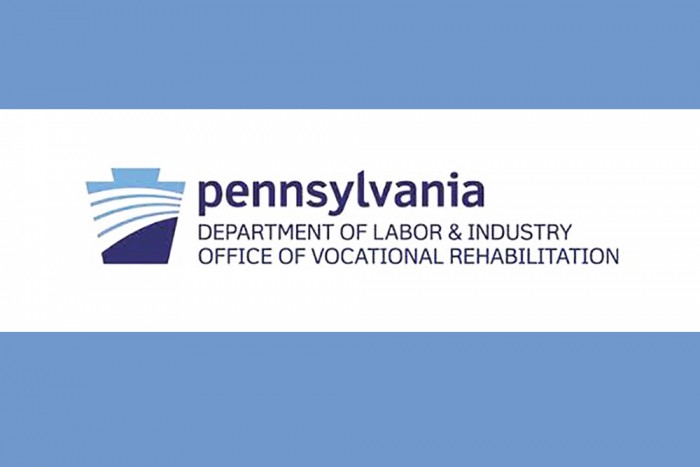SIS-A Assessment Webinar on Feb. 7

Starting January 1, 2024, all SIS-A Assessments will be conducted using the Supports Intensity Scale-Adult® 2nd Edition. The Arc of PA is partnering with the Office of Developmental Programs (ODP) in hosting a webinar on February 7, 2024, from 5:30 pm – 6:30 pm. The webinar will educate individuals and families on the changes and enhancements to the SIS-A evaluation. Register here.
Shapiro-Davis Administration Announces School Safety and Security Grant

The Shapiro-Davis Administration has announced a $155M School Safety and Security Grant for K-12 schools, with a focus on mental health support, as part of the 2023/24 state budget. The grants cover noncompetitive School Mental Health Grants, formula-based School Safety and Security Meritorious Grants, and Competitive School Safety and Security Grants. To apply and access information, including eligibility criteria, visit PCCD’s School Safety and Security web page. The application period ends on February 29, 2024. The funds aim to address basic safety needs and mental health services, as outlined in the Committee’s Revised Baseline Criteria Standards. For inquiries, please contact PCCD staff. Funding is facilitated through House Bill 301 in the 2023/24 state budget. For any other questions, contact RCPA Mental Health Policy Director Jim Sharp.
PA General Assembly Legislator Retirements and Updates
Not seeking re-election:
Rep. Paul Schemel (R–Franklin) (State House of Representatives – D90)
Rep. Rob Mercuri (R–Allegheny) (State House of Representatives – D28)
Rep. Ryan Mackenzie (R–Lehigh) (State House of Representatives – D187)
Rep. John Galloway (D–Bucks) (State House of Representatives – D140) – Elected as Magisterial District Judge in Falls Township
Rep. Patty Kim (D–Dauphin) (State House of Representatives – D103)
Rep. Jim Marshall (R–Beaver) (State House of Representatives – D14)
Rep. Mark Rozzi (D–Berks) (State House of Representatives – D126)
Rep. George Dunbar (R–Westmorland) (House of Representatives – D56)
Sen. John DiSanto (R–Dauphin) (State Senate – D15)
Sen. Mike Regan (R–Cumberland) (State Senate – D31)
Rep. Donna Oberlander (R–Clarion) (State House of Representatives – D63)
Sen. Jim Brewster (D–Allegheny) (State Senate – D45)
Members seeking different seats/offices:
Rep. Patty Kim (D–Dauphin) (State House of Representatives – D103) – Running for State Senate – D15
Rep. Rob Mercuri (R–Allegheny) (State House of Representatives – D28) – Running for U.S. House of Representatives – D17
Rep. Ryan Mackenzie (R–Lehigh) (State House of Representatives – D187) – Running for U.S. House of Representatives – D7
Rep. Ryan Bizzarro (D–Erie) (State House of Representatives – D3) – Running for State Treasurer
Rep. Mark Rozzi (D–Berks) (State House of Representatives – D126) – Running for State Auditor General
Rep. Jarred Solomon (D–Philadelphia) (State House of Representatives – D202) – Running for State Attorney General
Rep. Malcom Kenyatta (D–Philadelphia) (State House of Representatives – D181) – Running for State Auditor General
Rep. Craig Williams (R–Delaware) (State House of Representatives – D160) – Running for State Attorney General
Rep. Dawn Keefer (R–York) (State House of Representatives – D92) – Running for State Senate – D31
Rep. Nick Pisciottano (D–West Mifflin) (State House of Representatives – D38) Running for State Senate – D45
CMS Hospital Open Door Forum Scheduled for January 23
The Centers for Medicare and Medicaid Services (CMS) will conduct their next hospital open door forum on January 23, 2024, from 2:00 pm – 3:00 pm. The agenda for the Zoom call has not been released yet; however, registration to participate is available here.
Audiological Services Policy Public Meeting Notice Released
The PA Department of Labor & Industry’s Office of Vocational Rehabilitation (OVR) has developed a draft of the Audiological Services policy. The draft will be posted on OVR’s website for public review beginning January 15, 2024. Virtual meetings will also be held via Zoom at 10:00 am and 3:00 pm on Wednesday, February 7, 2024, to provide an overview of the policy and take questions and comments. Please note that content will be the same in both meetings.
The public is invited to comment on the draft policy for 30 days. Comments may be sent electronically through February 16, 2024.
Meeting information:
Wednesday, February 7, 2024
After registering, you will receive a confirmation email containing information about joining the meeting.
CART and sign language interpreters will be available for these meetings via the Zoom link. Additional auxiliary aids and services are available upon request to individuals with disabilities. Please send your request via email.
Identity Theft and Scams: What Everyone Should Know — PATF Webinar on Jan. 29
Identity Theft and Scams: What Everyone Should Know
January 29, 2024
02:00 pm EST
Register Here
This is the first in a series of PATF “Money Talks” webinars for 2024. This webinar will educate consumers on some “Do’s & Don’ts” of ID theft and scams. Each year, more than 10 million Americans have their personal information — including name, social security number, bank account, or credit card number — stolen. This presentation is designed to raise awareness of identity theft tactics, steps to take to protect your identity and personal information, and information on reporting identity theft.
Disclaimer: The information provided in this webinar is for educational purposes only. The Office of the Attorney General is not affiliated with Pennsylvania Assistive Technology Foundation (PATF).
The State of America’s Direct Support Workforce Crisis 2023 Briefing to Be Held by ANCOR
Reminder for IPRC Webinar: A Multidisciplinary Approach to Complex Craniofacial Diagnosis — Jan. 18
Thursday, January 18, 2024
10:30 am – 11:30 am EST; 9:30 am – 10:30 am CST;
8:30 am – 9:30 am MST; 7:30 am – 8:30 am PST
Register
Jo Barta, MD
Analise Ludwig, AuD, CCC-A, FAAA
Graham Scheck, PhD, CCC-SLP
Speaker/Panelist Bios:
Jo Barta, MD
Dr. Barta is a self-proclaimed “triple gopher,” having completed her undergrad, Medical School, and residency training all at the University of Minnesota. She went on to pursue a fellowship in Craniofacial & Pediatric Plastic Surgery at Seattle Children’s Hospital & University of Washington before being recruited back to the Twin Cities. She is currently the division leader for the Craniofacial & Pediatric Plastic Surgery team at Gillette Children’s Hospital, St. Paul, MN, and a surgeon for the cleft and craniofacial team at the University of MN.
Dr. Barta is board certified by the American Board of Plastic Surgery. She holds an academic position as an adjunct and associate professor for the University of Minnesota Medical School and is actively involved with many national and international societies for cleft and craniofacial care. She enjoys running, volunteering on surgical trips, traveling, and spending time with family.
Analise Ludwig, AuD, CCC-A, FAAA
Dr. Ludwig is an Audiologist with a Doctorate of Audiology from the University of Minnesota and a Certification of Clinical Competency in Audiology. She is a Fellow of the American Academy of Audiology. She participates in the American Speech-Language-Hearing Association, American Cleft Palate-Craniofacial Association, and the American Academy of Audiology, and she is a former president of the Minnesota Academy of Audiology. She has participated as a member of the Minnesota Department of Health’s Speech-Language and Audiology Advisory Council.
Dr. Ludwig’s goal is to provide comprehensive, flexible, and family-centered audiologic care. She works collaboratively with children, adults, and their caregivers to maximize hearing ability so patients can engage in and enjoy everyday life. In her free time, Dr. Ludwig enjoys spending time with her family, friends, and chihuahuas, playing the violin, cooking Italian food, and running.
Graham Schenck, PhD, CCC-SLP
Dr. Schenck is a Craniofacial Speech Scientist and Outpatient Lead SLP at Gillette Children’s in St. Paul, MN. He is also an adjunct professor in the Department of Communication Sciences and Disorders at the University of Wisconsin-River Falls. Graham has over eleven years of clinical and research experience in cleft palate and craniofacial differences. He specializes in the assessment and treatment of resonance disorders, speech sound disorders, and feeding/swallowing disorders across the lifespan. Graham’s current research lines include MRI and 3D imaging to evaluate the velopharyngeal complex and examining the efficacy of NMES dysphagia treatment in children with cerebral palsy.
Objectives: At the end of this session, the learner will:
- Define, identify, and briefly describe complex medical diagnoses that require multidisciplinary care from an accredited craniofacial team;
- Describe typical craniofacial team composition and roles of team providers (e.g., plastic-craniofacial surgery, speech-language pathology, and audiology); and
- Describe surgical and rehabilitation pathways for medically complex patients with craniofacial differences, including functional restoration of anatomy, airway management, and principles of feeding, speech, and hearing assessment and treatment.
Audience: This webinar is intended for all members of the rehabilitation team, including medical staff, nurses, physical therapists, occupational therapists, speech language pathologists, licensed psychologists, mental health professionals, and other interested professionals.
Level: Intermediate
Certificate of Attendance: Certificates of attendance are available for all attendees. No CEs are provided for this course.
CMS Medicare Clinician Enrollment Guidance: Resolution to Rejections & Addiction Counselor Clarification
RCPA and the National Council for Mental Wellbeing have worked together to resolve the recent concern with Medicare enrollment rejections for Marriage and Family Therapists as well as Mental Health Counselors. There have been many cases where the applications were rejected because applications did not include documentation or verification of the required 3,000 hours of supervision or the 2 years’ experience. RCPA met with the Centers for Medicare and Medicaid Services (CMS) on several occasions, outlining that the applications that meet the Medicare enrollment criteria have met this standard as part of the PA State License.
Initially, CMS cited that it was a requirement to provide the documentation. After communicating with CMS leadership, however, CMS responded that RCPA was correct and clarified that if a provider is licensed and the hours are a requirement for the licensure, said provider does not require the verification.
If your agency has received a rejected application, please contact RCPA Policy Director Jim Sharp, who will connect your agency to the proper department that will address the denial.
SUD Addiction Counselors Eligible for Medicare Enrollment
There have been several members who have attempted to enroll their SUD counselors who have met the enrollment qualification being told by CMS that the enrollment does not include these SUD professionals.
RCPA has confirmed with CMS leadership that if the provider is licensed as an addiction counselor or alcohol and drug counselor (ADC) by the state in which the services are performed, they can also enroll as an MHC as long as all other requirements are met.
MHCs are defined as individuals who:
- Possess a master’s or doctor’s degree, which qualifies for licensure or certification as an MHC, clinical professional counselor, or professional counselor under the state law of the state in which such individual furnishes the services defined as mental health counselor services;
- After obtaining such a degree, have performed at least 2 years or 3,000 hours of post-master’s degree clinical supervised experience in mental health counseling in an appropriate setting, such as a hospital, SNF, private practice, or clinic; and
- Is licensed or certified as an MHC, clinical professional counselor, professional counselor, addiction counselor, or alcohol and drug counselor (ADC) by the state in which the services are performed.
RCPA is recommending that this language accompany any future enrollment applications to CMS for SUD Addictions Counselors enrollment documentation.
















